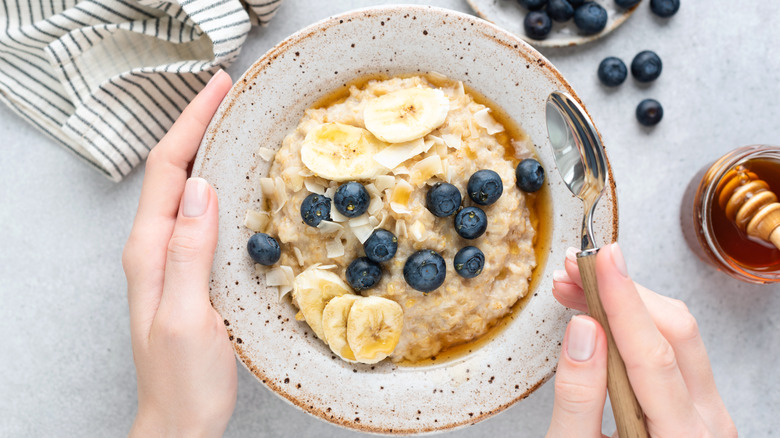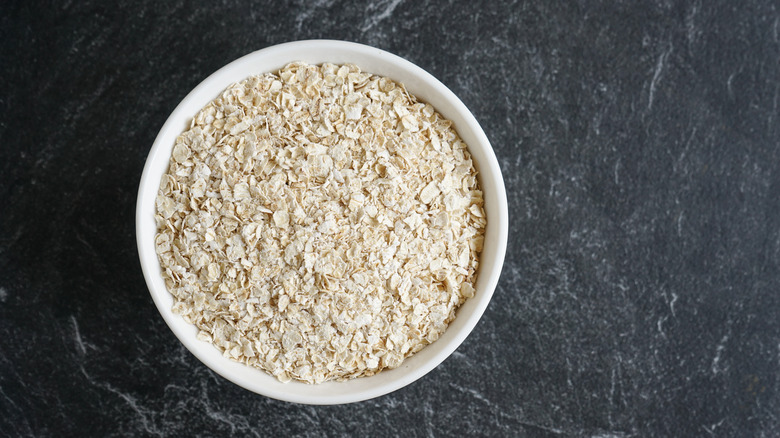The Ingredients You Need To Watch Out For In Your Oatmeal
Oatmeal can be a fantastic breakfast option. According to Healthline, oats are packed with vitamins and minerals like manganese, copper, iron, and more. They're also an excellent source of carbohydrates and fiber. Oats are high in antioxidants that have anti-inflammatory benefits. Eating oatmeal frequently can lower cholesterol, improve blood sugar control, and improve digestion.
Oatmeal comes in many forms. It can be made by boiling whole-grain oats in water, but this preparation method can be time-consuming. Because of this, instant oats and quick-cooking oats are popular among consumers because they don't take as long to prepare. However, processed versions of oats often contain additives to improve their texture, taste, and cooking time. According to Eat This, Not That!, glyphosate, a carcinogen, has been found in various oat products in recent years. Choosing an organic oatmeal product may help you avoid the risk of eating this substance. It should be noted as well that more research is necessary to support this claim.
Packaged oatmeal often contains additives
Unless you're buying plain oats, many oatmeal products contain added ingredients for taste. Added sugar is very common in store-bought oatmeal (via CNET). Just one serving of packaged oatmeal can contain half of your daily recommended sugar intake. It's best to buy unsweetened oatmeal and add in flavor enhancers yourself. Honey, nut butter, yogurt, and fresh fruit are all natural ways to improve the taste of your breakfast.
Some ultra-processed oatmeal products may also contain less fiber than plain oats. Ideally, you should choose a product that contains at least three grams of fiber per serving (via HuffPost). You should also choose oatmeal that has as few ingredients as possible. If you follow these guidelines, you can be happy with your breakfast choice. "The only oatmeal that can do you any good is the oatmeal you eat, and even instant oatmeal is better than most breakfast choices most Americans make," said Dr. David L. Katz, director of the Yale University Prevention Research Center.


